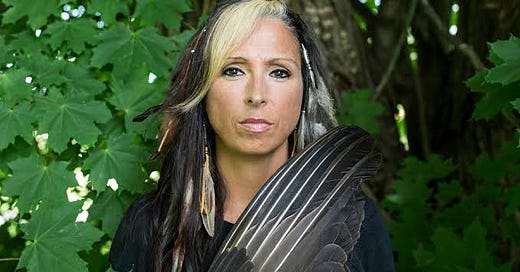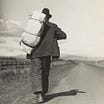The dangerous rhetoric of activists
Pam Palmater says Canadian farmers are "rural white supremacists" who shoot indigenous people
By
In April of 2021, the Canadian House of Commons tabled Bill C-21 - An Act to amend certain Acts and to make certain consequential amendments (firearms). According to the overview found on the Government of Canada website:
“Bill C-21 proposes a number of amendments to the Criminal Code, the Firearms Act, and other federal legislation that seek to fulfill the Government of Canada’s commitments in relation to gun control and to protect Canadians from firearms-related harm.”1
Initially focusing on restricting legal access to handguns.2 The scope of the bill was broadened by the Liberals who later introduced an amendment including a new legal definition for “assault style weapons.” This meant that hundreds of firearm models would be prohibited, including some quotidian hunting rifles. Opposition MPs were outraged by what they saw as Liberals attacking law-abiding gun owners.
Indigenous leaders also complained that the proposed gun legislation would infringe on treaty rights. The Chiefs at the Assembly of First Nations voted in December of 2021 to publicly oppose Bill C-21.3
Responding to the controversy, the Liberals agreed the bill needed “fine tuning.” In December of 2022, Justin Trudeau explained to Senior Editor of CTV National News Omar Sachedina:
“Our focus now is on saying okay, there are some guns, yes, that we're going to have to take away from people who were using them to hunt…But, we're going to also make sure that you're able to buy other guns from a long list of guns that are accepted that are fine for hunting, whether it's rifles or shotguns. We're not going at the right to hunt in this country. We are going at some of the guns used to do it that are too dangerous in other contexts."4
In June of 2023, journalist Bryan Passifiume filed a report for the National Post on “a group of professors, researchers and firearms policy experts (who) say Bill C-21 will do little to combat violent crime and may even do more harm than good.” In that report, Noah Schwartz, assistant political science professor at the University of the Fraser Valley told the National Post, “the bill, as it stands, doesn’t really address major public safety concerns.”5
Just days ago, on October 30th, the Canadian Senate held a meeting to discuss the bill, afterwards a short video of Pam Palmater, a Mi'kmaq lawyer, professor, activist and politician from New Brunswick, circulated social media. In the clip, Palmater is seen addressing the Senate, claiming that Canada's rural white supremacy problem is the largest in the world, and that Canadian farmers are actually a community of racists inciting hate and killing indigenous people.
From Palmater to the Senate:
“Canada is a little slow on the draw in terms of considering white hate groups as a domestic terror threat. And the link to gun violence because indigenous peoples have been killed by white supremacists. I mean, Leo LaChance was killed. Um Look at “rural racism,” not in the area of white hate group but having the same feelings. I mean, what happened when Colton Boushie - unarmed Colton Boushie - was shot point blank. What was the response by rural farmers? Let’s get more weapons, let’s shoot them, let’s kill them and put them in the ground. And so it's that kind of incitement to violence that leads people to do what they might not otherwise do if they didn’t have that community of support. Which in Canada, being the most significant in the world, should be a bigger concern. But we pay attention to the U.S. to the detriment of our own.”
Here is a take from one of my favorite cultural commenters on X, Orwell_X:
“Wake up people - the activists and the technocratic elites are working together. Recent gun-banning legislation failed b/c Indigenous overruled it. Now they need an excuse to apply the law to everyone BUT Indigenous to get it passed. This is the narrative.”
Orwell_X makes an uncomfortable point. Setting aside the alarmingly overt and completely false Social Justice rhetoric around Canadian “racism” and “rural white supremacy”, and considering the implications of Canada’s decades long illiberal approach to indigenous policy, is it really beyond consideration to think that only non-indigenous Canadians might end up subject to firearm restrictions? Can you imagine if this idea were proposed to our southern neighbours?
“Citizens Plus,” a term coined in the 1966 Hawthorn Report describes the extra rights and privileges enjoyed by indigenous Canadians through the various treaty arrangements, which of course, are not extended to non-indigenous Canadians. Is it really a stretch to argue that the overall thrust of policy which has not treated indigenous Canadians as equals, but has aimed to advantage them over the non-indigenous, might lead to policy allowing access to a wider range of firearm models, or to any firearms what-so-ever, only for those who identify as indigenous?
According to Palmater’s website, she has published two books: Beyond Blood: Rethinking Indigenous Identity, and her most recent, Warrior Life: Indigenous Resistance and Resurgence is described as a “collection of anti-colonial writings which challenge genocide, racism and oppression of Indigenous peoples”6 (emphasis mine). Palmater is exactly the type of activist - indigenous activist or “activist plus” - that Orwell X is concerned about.
It is telling that Palmater chose to use the example of Colton Boushie in her indictment of Canada as a bastion of rural white supremacy. The Boushie case was controversial back in 2018. The CBC, unsurprisingly, got everything wrong, and misrepresented Colton Boushie, an indigenous man, as the victim, and farmer Gerald Stanley, a white man, as a racist murderer.
Retired Manitoba Judge Brian Giesbrecht, who’s legal career consisted of a lifetime of experience dealing with endless scenarios similar to the one involving Colton Boushie and Gerald Stanley, set the record straight in a 2018 op-ed for the Frontier Center for Public Policy.
“...the way the media described this as a case of young people innocently going onto a farm for help with a flat tire? This is blatantly untrue. This is a case of intoxicated young criminals, armed with a loaded weapon, brazenly entering the property to steal. This happened in broad daylight. It was an ‘in your face’ home invasion. Yet the CBC and other mainstream media insist on repeating the lie that this is a case of a young man who died while trying to get a tire fixed.”7
Gerald Stanley was acquitted, but activists want to tear down the judicial system, and all other systems of Western society, so they only accept legal verdicts that support their activism. Palmeters invocation of Boushie as an example to prove her point, tells us everything we need to know about this dangerous opportunist and fomenter of social division.
Another name dropped in Palmater’s Senate diatribe was Leo LaChance, a case stretching back all the way to 1991. Since there are so few examples of murderous rural white supremacists killing indigenous people, Palmater, like a good activist, must scour the historical record for the few cases of what she tries to convince us is endemic. Even a CBC documentary entitled “The Death of Colten Boushie was not an Isolated Incident”, could only produce six tragic examples (one being Leo LaChance).8
In an email exchanged I asked Brian Giesbrecht about Palmaters inflammatory rhetoric in the Senate. His response:
“The irony is that Palmeter received a western education, lives comfortably in the city - basically has accepted all of the gifts ‘colonizers’ were happy to give her, but - instead of gratefully passing on her experience to marginalized indigenous people who need that advice - passes on only bitterness and grievance."
I also reached out to opinion writer Michael Melanson, who consistently provides insightful analysis on Canadian indigenous issues. His take:
“Palmater is doing what she has always done: foment hate and bigotry. She belongs to that class of aboriginal activists who gauge personal success by the volume of vitriol they get publicized.”
I agree with Brian and Michael. As we have seen with the awful pogrom in Israel on Oct 7th, the rhetoric around colonization, and the rift it seeks to create between “settler oppressors” and “indigenous victims” is dangerous and divisive. It is the propaganda of activists used to excuse both hate and violence. There is no place in Canada for this nonsense. Pam Palmater is a fool, pass it on.
Next, I’ll do Harsha Walia.
___
Thanks for reading. For more from this author, read The YRDSB is a hive of Social Justice activism
There are now two ways to support Woke Watch Canada through donations:
1) By subscribing to the paid version of the Woke Watch Canada Newsletter for - $7 Cdn/month or $50 Cdn/year
2) By making a contribution to the Investigating Wokeism In Canada Initiative, which raises the funds necessary to maintain and expand Woke Watch Canada’s research and investigation into Dysfunctional Canadian School Boards, Education, Indigenous Issues, Free Speech, and other areas of Illiberal Subversion and the Canadian Culture Wars.







Pam Palmater is a classic example of the rotten apple spoiling the barrel. In 2021 the barrel was Ryerson University in Toronto, a once respected Ontario institution, that became intoxicated with Woke mentality and decided to show the world how progressive and committed it was to indigenous education, diversity and social justice by establishing what it called the, "Chair of Indigenous Governance". Pam Palmater was afforded that position which signaled the beginning of the end to both the historical legacy of Egerton Ryerson and the school of his namesake. Using the fictitious lie of Residential School genocide catalyzed by the falsehood of the Kamloops graves, the schools exterior was soon cheapened by ghetto graffiti, protests and the toppling of the once historic statue of Egerton Ryerson. With no pushback from the schools administration and no intervention by the Ministry of Education, what was once a well known Toronto landmark became the helpless victim of indigenous activism and melted into anonymity with a new non descript and unassailable name of "The Toronto Metropolitan University". It wasn't a complete victory for Palmater, as her request for an indigenous name never materialized. The incident does reinforce Michael Melanson's point that:
“Palmater is doing what she has always done: foment hate and bigotry. She belongs to that class of aboriginal activists who gauge personal success by the volume of vitriol they get publicized."
Colton Boushie’s death was sad and lamentable, but his “case of intoxicated young criminals, armed with a loaded weapon, brazenly entering the property to steal” is not uncommon. The Stanley family never left their farm and posed a threat to others. Our woke and immoral media chose the wrong side to defend.